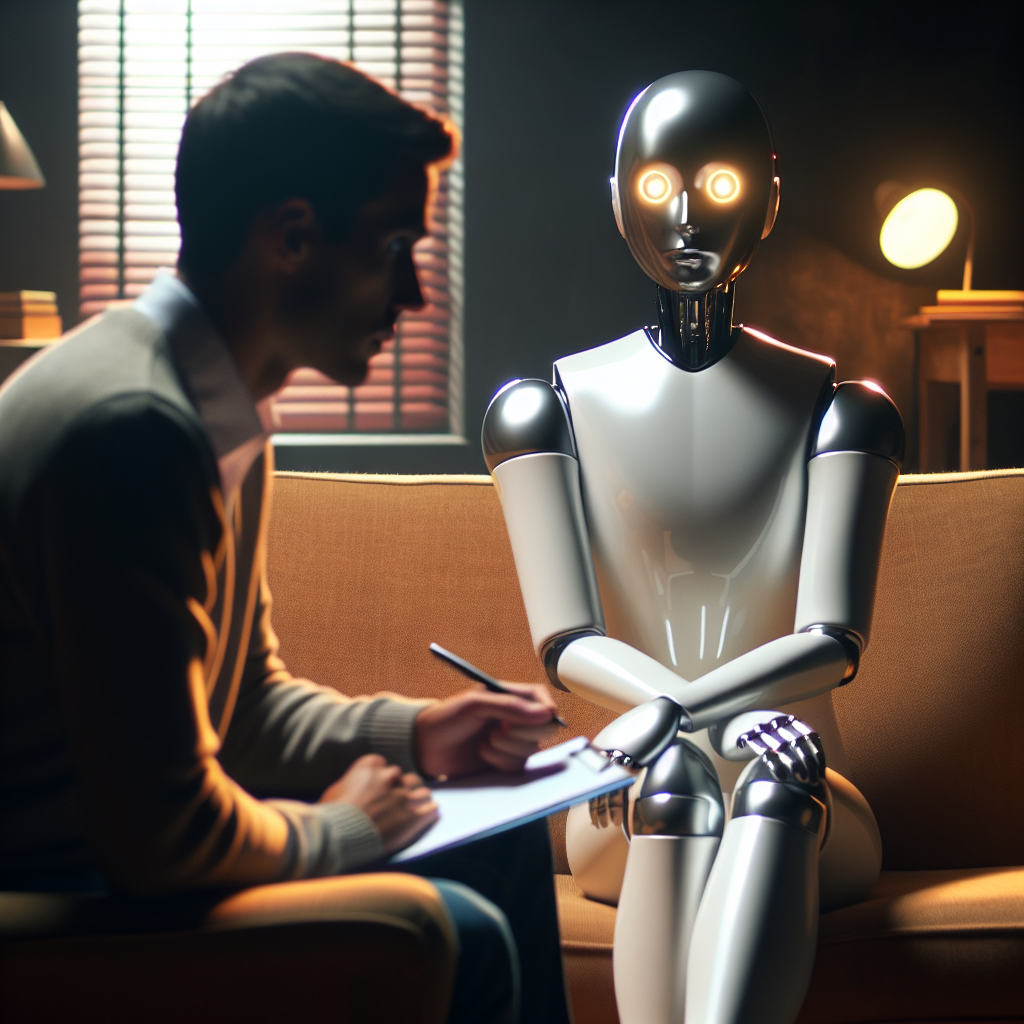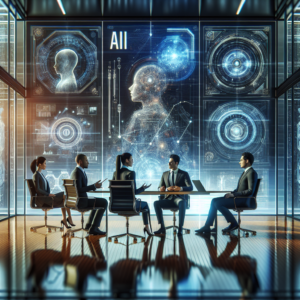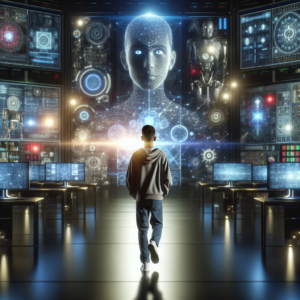Human Therapists Prepare for Battle Against A.I. Pretenders
As artificial intelligence (A.I.) technologies continue to evolve at an unprecedented pace, the mental health sector finds itself at a critical juncture. The emergence of A.I.-powered chatbots and virtual therapists has introduced a new dynamic, prompting human therapists to rethink their roles and strategies in providing mental health care. This article explores the ongoing battle between human therapists and their A.I. counterparts, shedding light on the implications for both practitioners and patients.
The Rise of A.I. in Mental Health
Over the last few years, the mental health landscape has witnessed a significant shift due to the introduction of A.I. technologies. Many companies are developing A.I.-powered systems that offer therapy-like services, often at a fraction of the cost of human therapists. These systems utilize natural language processing to engage with users, providing support that may seem remarkably similar to that of a human therapist.
Accessibility and Convenience
One of the primary advantages of A.I. in mental health care is its ability to provide 24/7 access to support. Individuals living in remote areas or those with busy schedules can now turn to A.I. for immediate assistance without the need for traditional office visits. This increased accessibility can be a game-changer for many people, particularly those who may be hesitant to seek help from a human therapist due to stigma or fear.
Cost-Effectiveness
A.I. therapy services often come at a lower price point than traditional therapy sessions. This affordability is appealing to many, especially in an era where mental health services are often underfunded. With A.I. technology, users may find they can engage with mental health support without breaking the bank, leading to an increase in overall engagement with mental health care.
The Response from Human Therapists
As A.I. begins to encroach upon the realm of mental health care, human therapists are not sitting idly by. Instead, they are actively responding to this challenge by emphasizing the unique value they bring to the therapeutic process.
Building Genuine Connections
While A.I. can simulate conversation and provide responses based on learned patterns, it lacks the ability to establish meaningful human connections. Therapists highlight that the therapeutic alliance—built on trust, empathy, and understanding—is a crucial component of effective therapy. Unlike A.I., human therapists can genuinely relate to their clients’ experiences, offering insights and emotional support that a machine simply cannot replicate.
Ethical Considerations
The integration of A.I. into mental health care raises important ethical questions that human therapists must confront. For example, who is responsible if an A.I. system fails to provide adequate support or leads a user to harmful conclusions? Human therapists are trained to navigate complex ethical dilemmas, making them indispensable in situations where nuanced judgment is required.
The Future of Therapy: Collaboration or Competition?
The relationship between human therapists and A.I. technologies doesn’t need to be one of competition. Many experts believe there is potential for collaboration in the future. A.I. can serve as a tool to enhance the work of human therapists, rather than replace them.
Augmented Therapies
Imagine a future where A.I. assists human therapists by providing them with data insights into client progress, enabling them to tailor their approaches more effectively. A.I. can handle administrative tasks, allowing therapists to focus more on direct client interaction. This synergy could lead to enhanced outcomes, making therapy more efficient and effective.
Training and Development
In light of the challenges posed by A.I., therapists are also adapting their training approaches to include knowledge of A.I. tools. By understanding how A.I. works, therapists can better position themselves in a changing landscape. Some institutions are even beginning to incorporate A.I. training into their curricula, preparing future therapists for a world where technology plays a significant role in mental health care.
Client Perspectives: Trusting A.I. versus Human Therapists
As clients navigate their mental health journeys, their preferences for A.I. versus human therapists vary widely. Some individuals find comfort in the anonymity and convenience of A.I. services, while others crave the depth of understanding that only a human can provide.
Personalization and Tailored Care
For many clients, the one-size-fits-all approach of A.I. therapy lacks the personalization that human therapists can offer. Each person’s mental health journey is unique, and human therapists excel at tailoring their interventions to meet individual needs, emotions, and circumstances. This personalized approach is often deemed essential for effective treatment.
The Importance of Human Touch
At the end of the day, mental health is deeply rooted in human experiences, emotions, and relationships. The therapeutic process often requires a level of vulnerability and trust that many individuals are hesitant to extend to a machine. Human therapists provide a safe space where clients can explore their thoughts and feelings without fear of judgment.
Conclusion: Embracing Change in Mental Health Care
As the mental health field navigates the rise of A.I. technologies, human therapists must adapt and evolve alongside these advancements. The future of therapy may very well depend on finding a harmonious balance between the strengths of human practitioners and the innovations of A.I.
In the coming years, human therapists will likely continue to assert their crucial role in the therapeutic landscape, emphasizing the significance of genuine connections, ethical considerations, and personalized care. By doing so, they will not only preserve the integrity of their profession but also ensure that mental health care remains a deeply human endeavor, even in an age of technology.
Ultimately, the battle against A.I. pretenders need not be a zero-sum game. Instead, it can foster an environment where both human therapists and A.I. tools collaborate to enhance mental health care, benefiting clients in ways that neither could achieve alone.



